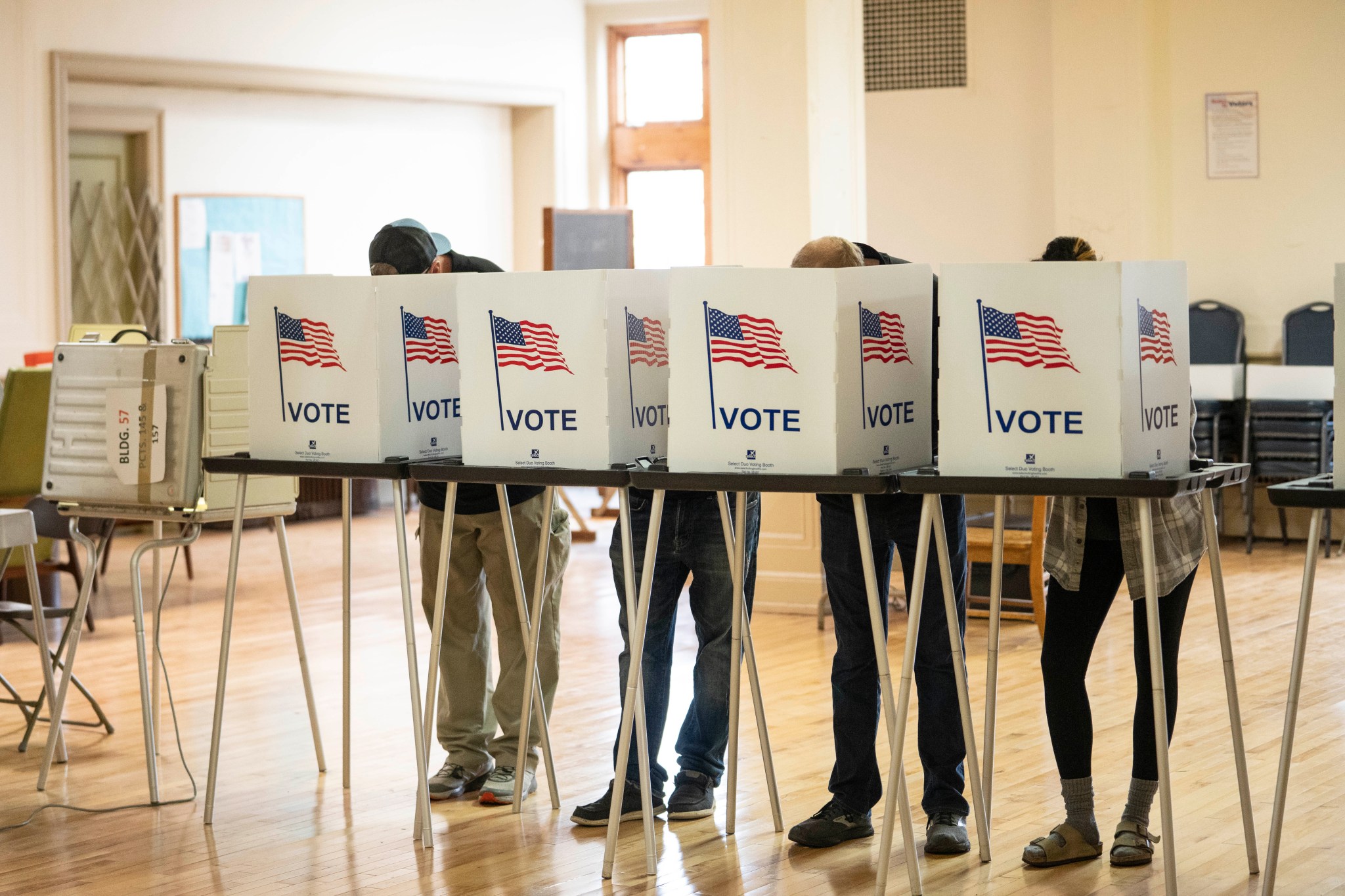Officials across the country spent the four years following 2020 preparing for another deluge of violence and chaos during the 2024 presidential election.
Thankfully, during early voting and on Election Day itself, violence was minimal. A series of bomb threats in swing states brought a degree of chaos, though the FBI quickly dismissed them as not credible.
The relatively smooth election does not, however, show the years of warnings to be misguided, law enforcement and election experts told TPM. Rather, officials in both Arizona and Georgia — epicenters for 2020 election turmoil and threats — credit careful planning and some extreme-sounding security measures for the smooth and safe way that November’s election played out.
“These precautions were necessary to ensure that there was no disruption,” said Lindsey Miller, director of strategic research at the nonprofit Informing Democracy. “And had the outcome been different, I think we would’ve seen these systems be tested much more rigorously than they were.”
In Georgia’s Cobb County, during the months leading up to the election, the director of elections and director of the Public Services Agency, citing a “severe increase in concern for election worker safety,” approved the implementation of “panic buttons” as a way to protect poll workers. Although the measure sounds dramatic, election officials and experts told TPM at the time that this was a necessary measure to protect poll workers, given the threat environment election workers faced in a post-2020 world.
Also in the lead up to November, Georgia became the first state to mandate election intimidation training for law enforcement. The program, which was a direct response to the wave of violence and threats that followed the 2020 election, was intended to train law enforcement on the state’s election code so that they could be better prepared to enforce the law at polling places, if needed.
Chris Harvey, former Georgia election’s director and current deputy director of Georgia Peace Officer Standards and Training Council, described these measures in an interview with TPM as “insurance,” and as a “necessary part of any type of government operation providing security and responsiveness and training.”
“You can look at it and say, ‘well, we spent all this money on protection and then nothing happened,’” he said. “Well, how much of what didn’t happen was caused by all the preparedness?”
Georgia was hit with dozens of bomb threats on election night, and Harvey credits the training and security measures that were put in place beforehand with creating the conditions that allowed law enforcement to handle these threats quickly and effectively.
“I really believe that the fact that nobody freaked out, nobody went berserk — law enforcement responded quickly … people made adjustments and it really was not a factor at all — was largely due to the fact that they talked about all that stuff before,” he said.
In Maricopa County, Arizona — a hotbed for election threats and violence following the 2020 election — officials renovated election infrastructure, turning the county’s tabulation center into what they described as an almost unrecognizable “encampment.”
The county’s tabulation center now has permanent fencing and a badge requirement, as well as netting on the permanent fencing to prevent voters from taking pictures of election worker’s license plates. The county also increased undercover law enforcement at polling places on Election Day.
Like Harvey, Maricopa County supervisor Bill Gates told TPM that, given the violence of 2020, there was simply no other choice but to prepare for the worst-case scenario, especially because Maricopa County was such a “flashpoint” for election violence.
The investment in security measures is “really just a drop in the bucket compared to what is at stake,” Gates said. “Both the physical safety of those who are doing elections, who are running elections, and those who are participating in elections, and then the importance and value that comes from the lack of any physical violence as it relates to people’s faith in democracy.”
When bomb threats hit his county, Gates said, law enforcement was ready because of “that general heightened sense of attention to any kind of threats.”












